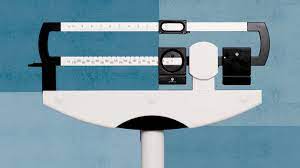Ankylosing spondylitis (AS) is a chronic inflammatory condition that primarily affects the spine, but it can also lead to hip pain and discomfort. If you’re dealing with AS-related hip pain, there are several strategies you can use to find relief and improve your quality of life. In this article, we’ll explore nine effective tips to help manage and alleviate hip pain caused by ankylosing spondylitis.
1. Maintain Good Posture: Maintaining proper posture helps reduce strain on your hips and spine. Pay attention to your alignment while sitting, standing, and walking to minimize the impact on your hips.
2. Practice Gentle Exercises: Engage in low-impact exercises such as swimming, walking, or gentle yoga to keep your hip joints mobile and alleviate stiffness.
3. Use Heat and Cold Therapy: Apply a warm compress or take a warm bath to relax your hip muscles and ease pain. Cold packs can help reduce inflammation during flare-ups.
4. Invest in Supportive Footwear: Wearing shoes with proper arch support and cushioning can improve your posture, reduce hip pain, and provide comfort during daily activities.
5. Stretch Regularly: Incorporate stretching exercises that target your hip muscles and surrounding areas. Consult a physical therapist for guidance on safe and effective stretches.
6. Consider Physical Therapy: Working with a physical therapist can help you develop a personalized exercise plan to strengthen your hip muscles, improve flexibility, and alleviate pain.
7. Practice Deep Breathing: Deep breathing techniques can help relax tense muscles around the hip area and provide relief from discomfort.
8. Use Assistive Devices: Using devices like canes or braces can provide support and stability, especially when walking or standing for extended periods.
9. Consult Your Doctor: If your hip pain persists or worsens, consult your doctor or rheumatologist. They can adjust your treatment plan, recommend medications, or suggest other interventions.
FAQs:
Q1: Can I continue exercising with hip pain from AS? A: Yes, low-impact exercises like swimming and walking are generally recommended. Consult your doctor or physical therapist for personalized recommendations.
Q2: How can I differentiate between AS-related hip pain and other hip issues? A: Consult your healthcare provider for an accurate diagnosis. AS-related hip pain tends to be chronic, worse after rest, and often improves with movement.
Q3: Is surgery an option for AS-related hip pain? A: Surgery is considered when other treatments haven’t provided relief. Talk to your doctor about the potential benefits and risks.
Q4: Can diet affect hip pain? A: Some people with AS find that certain foods may trigger inflammation. Consult a dietitian to explore potential dietary adjustments.
Q5: Can stress worsen AS-related hip pain? A: Stress may contribute to pain flare-ups. Practices like meditation and relaxation techniques can help manage stress.
Conclusion: Living with ankylosing spondylitis and hip pain can be challenging, but there are many strategies you can implement to find relief and improve your overall well-being. By practicing good posture, engaging in gentle exercises, and exploring various pain management techniques, you can take control of your hip pain and continue to lead a fulfilling life. Always consult your healthcare provider for personalized advice and guidance.








